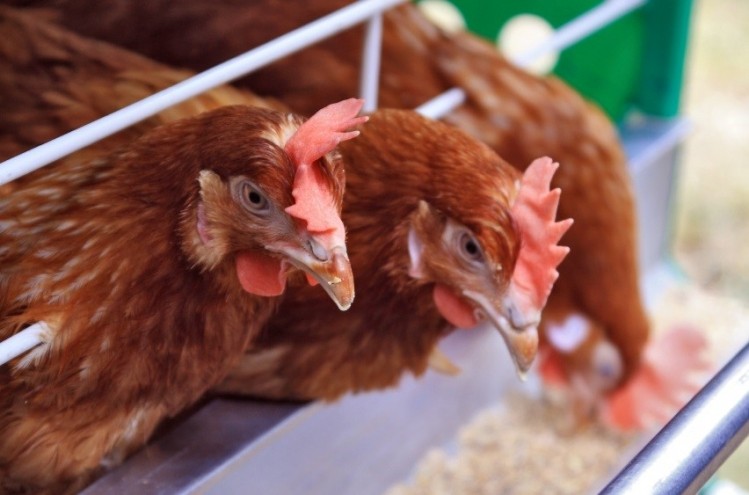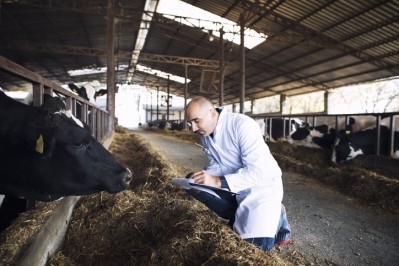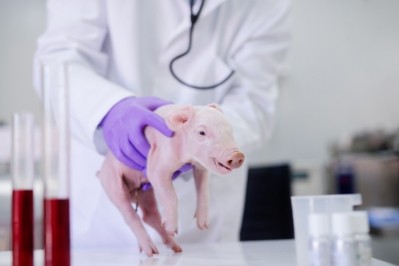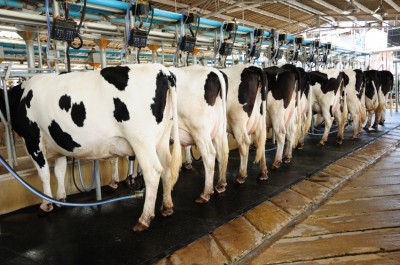Antibiotic resistance: welfare group says 'probiotic innovation shouldn't shore up farm mismanagement'

“Of course, we need to look at innovation in feed components. But we shouldn’t repeat the mistakes of the past, and use these antimicrobial substitutes to support factory farming conditions, which are disease inducing.
Intensive livestock production is inefficient and all the evidence shows this approach jeopardizes rather than enhances food security,” said Philip Lymbery, CEO of Compassion in World Farming, talking to this publication last week.
A more effective method for reducing disease and allowing the livestock industry to migrate away from the routine use of antibiotics is to reduce stocking densities and keep animals in healthier conditions, he said.
Lymbery was reacting to the recent report from the World Health Organization (WHO) showing increasing global antimicrobial resistance (AMR).
The report from the global organization, released on 30 April, found that “microorganisms resistant to antimicrobials that emerge in animals may spread to human populations.”
The WHO review also notes a growing concern about transmission to human populations of methicillin-resistant staphylococcus aureus (MRSA) related to high-density swine production.
The organization said there is a lack of harmonized global standards for integrated surveillance of AMR in the food chain, and on the monitoring of the usage of antimicrobial drugs, which hampers both analysis and sharing of data.
“There are gaps in understanding AMR transmission potential and mechanisms (by bacteria and resistance genes) through the food chain to humans and its impact on human populations,” found the review.
Prudent usage of antibiotics
FEFAC, the voice of European feed manufacturers, says it is in favor of prudent and targeted, rather than routine, use of antibiotics in feed.
“Though we don't want to make any health claims, we do indeed endorse the importance of a balanced nutritional diet that fosters animal gut health and would reduce the need for antibiotic use,” said the trade group.
FEFAC is a member of the European Platform for Responsible Use of Medicines in Animals (EPRUMA).
Responsible use of medicines in animals, said EPRUMA, is based on a holistic approach of minimizing disease through biosecurity measures that aim to keep groups of animals healthy or to limit the spread of diseases within an animal population, good housing and ventilation and good hygiene.
It also involves measures around appropriate nutrition and regular monitoring of animal health and welfare and vaccination.
Action plan on AMR
The UK leg of the platform, The Responsible Use of Medicines in Agriculture Alliance (RUMA), last month launched an action plan to support the UK Government’s Five Year Antimicrobial Resistance (AMR) Strategy that was launched in the autumn of 2013.
“Inevitably, the plan is still at an early stage,” said RUMA secretary general, John FitzGerald.
And in a bid to improve public engagement, RUMA said it has published an information note on antibiotic resistance to explain what it is and why it matters to human and animal health. It also sets out why and how antibiotics are used in UK farms, identifies the risks to public health from use of antibiotics in farming, and explains their responsible use in animal husbandry.
The document, said the alliance, is targeted at both consumers and regulators.
House of Commons inquiry into AMR
FitzGerald gave evidence to the House of Commons Select Committee on Science and Technology inquiry into antimicrobial resistance in January this year.
He told the Committee: “If you are going to take decisions based on science you ought to be looking at the best quality and most detailed science that you can get.
Because it is such a complicated area, we need to make sure that we take decisions that mean we control antibiotic use in the right way … but if you are going to limit the use of antibiotics in animals you may cause problems in the health and welfare of the farm livestock.”
Catherine McLaughlin, animal health and welfare adviser at the National Farmers’ Union (NFU), also gave evidence to the Committee.
She said the use of vaccines in livestock could be an effective antibiotic alternative.
“We welcome the use of vaccines. It is part of the arsenal of tools in the toolbox that farmers have available to protect the health status of their animals.”
The Select Committee debate can be read here.
The third International Conference on Responsible Use of Antibiotics in Animals takes place in Amsterdam in September 2014. It will evaluate recent scientific research that has been focused on finding alternatives to antibiotics in feed.
The full conference program can be accessed here.








